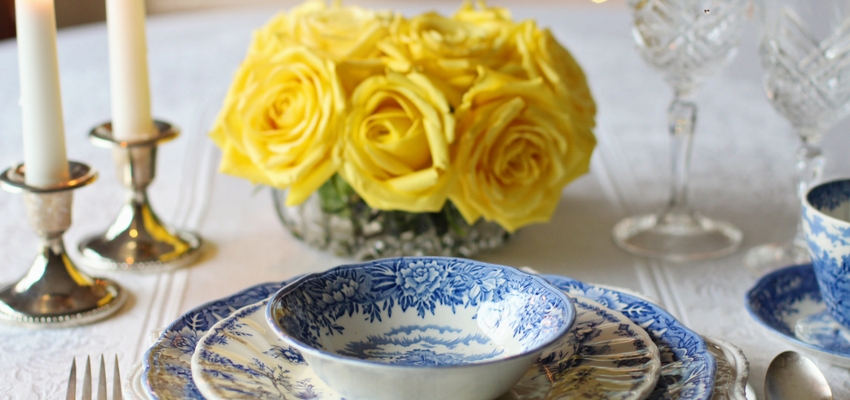Breaking old patterns: protocol at the restaurant
I invite you to accompany me to the past once more, to sniff at the memories of my beginnings in the world of hospitality. A couple of anecdotes came to my mind, some of those critical moments in the career of a waiter, in the training camp that teaches more in this world: the restaurant. Frequently the eye is put on the most suitable management of the kitchen, which is very intelligent, but we must not forget the importance of the dining-room. For me, it also has a lot to say in the enjoyment of our gastronomic experiences.
Moments to remember
Moment of truth in the beverage service at a table full of important people at a convention. Me, 14 years old, inexperienced on all four sides, legs shaking, the tray full of drinks ready to serve. If you could put what I was living then in an amateur film plane, my eyes would be the camera, and a very cold beer would be in the very first close-up, with diners thirsty and impatient in the background. There´s no need to add anything about the levels of adrenaline that ran through me when I got to that table. First mistake: I serve the gentleman on my right, recklessly forgetting the ladies present. Second mistake: without asking anything to anyone, I dump the entire contents of the beer bottle in its glass, as if it were still water. Naturally, the glass was filled with 80% of bubbling foam in front of the hallucinated face of that man. I could always have been lucky, and find probably the only person in the world who prefers very little beer and a lot of foam in the cup, but it was not like that: _ “But boy, what are you doing ?!”. And let the abysses of hell be opened! You can not be so demanding with yourself when you have such a short career. But believe me, there is nothing that resists you with enough time and practice. And you definitely learn from mistakes.
Second anecdote: this time the protagonist was wine. The scenario was practically the same, but now it was in a restaurant on the coast and the customers were tourists. A couple of years later, a similar scenario, and the same error: without asking anything, I served the wine glass to the gentleman, ignoring by the lady. The difference? This time I doubted the order of this protocol. And the reaction that I perceived in the clients was not very positive, the gentleman complained. Two errors, the same solution.
Later in time, with more work and more study; I learned always, always, always to ask. We will never be wrong, nor will we be insecure or inexperienced for asking. This way we make sure that we are correct in the performance because it is simply what the person asks us to do; zero risk of failure. With practice you learn to calibrate; to read non-verbal gestures; to generate good outputs; and also to relax, invent and play. This is very appreciated by many customers.
And as for protocols, we have to make our vision more flexible. Not necessarily the man in front of a bottle will know more about the wine than the woman (do you know that women have more olfactory sensitivity than men?). Sometimes we can find that in a couple will be the man who asks for a beer without alcohol. As well there is no reason to expect that the sommelier who assists us in each restaurant will be always a man. It is not mandatory that a white wine accompany the fish, or a red wine to a cheese tray, someone can always dare to try a different combination. Let us also dare to open the mind, to break prejudices, to change protocols. There is a constant in this life that governs us from the first to the last day: everything changes.
If, like me, you think you are one of the brave ones able to reinvent the position of the waiter, participate by sharing your anecdotes, doubts, and tricks to elegantly save those moments of the job that challenge you to get the best out of yourself. See you soon gourmets friends.











Divertidas las historias de tus comienzos.
Participo con una: Estando trabajando en un Bar Musical, y llevando apenas una semana allí, me dejaron sola unos minutos. Primera hora de la tarde, y entran dos clientes a los que no conocía. Y me preguntan: ¿Tenéis cucarachas? No sé si lo recordaréis, pero una Cucaracha era un chupito muy famoso en los 90′. Yo no lo había escuchado en mi vida. Mi respuesta fue la más obvia: No… Desinsectamos la semana pasada (mentira podrida). Los chicos se rieron, aunque no sé muy bien si porque tomaron mi respuesta como una broma o, directamente de mí, por pardilla. Preguntar, siempre preguntar…..
En cuanto al protocolo, además del tiempo, es importante el lugar donde te encuentras. Como profesional, no se puede atender igual en una Tasca que en un Restaurante con Estrella Michelín. Lo que si es importante es el respeto y la educación, y eso es tan válido para profesionales como para clientes (algo que muchos olvidan). También es importante saber cuando se deben aplicar determinadas normas y cuando el aplicarlas es hacer el ridículo.
Y de lo que hablas: los gestos no verbales: si aprendiéramos eso (que yo creo que hay que tener una facilidad genética), tendríamos la mitad del oficio aprendido.. Creo que lo más importante es la Atención al Cliente, y si aprendiéramos a conocer a este solo con mirarlo… cuantos problemas nos podríamos ahorrar….
Un saludo a tod@s!!!
Xavi, yo aprendí mucho trabajando de camarera. No solo del oficio, si no la gente, de los compañero y de los clientes. Aprendí a aprender. Y aunque ya no puedo trabajar de camarera por la lesión de la mano, es un trabajo que cuando se hace con agrado puede ser muy bonito. Y aveces frustran te y agotador. Parece una tontería, pero yo descubrí que era una pala de pescado, un lito o rango gracias a ese trabajo.
Y además me ha servido para ser más paciente cuando voy a comer fuera. Aunque si es verdad que entonces te fijas más en el trabajo del camarero.
Si algo es algo que he aprendido en mas de 25 años como profesional de Hosteleria es que nunca se deja de aprender. Los protocolos son una guía a la hora del servicio pero no una ciencia cierta. La sicología que se va adquiriendo durante los años ayudan a resolver en ocasiones malas patas, como mantener distancias o acercamientos verbales si se da el caso. Un camarero experimentado es el que no se hace notar y sin embargo esta todo atendido o supervisado.
El no discutir con un cliente es siempre una batalla ganada ya que hacerle enfurecer es no te llevara a nada, de ahí el tener dotes sicológicas.
Ser camarero es un arte que muy pocos reconocen y valoran y muchas veces el baile sincronizado de una sala de restaurante es el trabajo de muchas horas.
Los cocineros an hecho un buen trabajo en proteger su rama de la Hosteleria ahora nos tocas a nosotros en estar unidos de la mejor forma que sabemos…que nuestros comensales o clientes salgan del local con sensaciones únicas, las de un trabajo apasionado